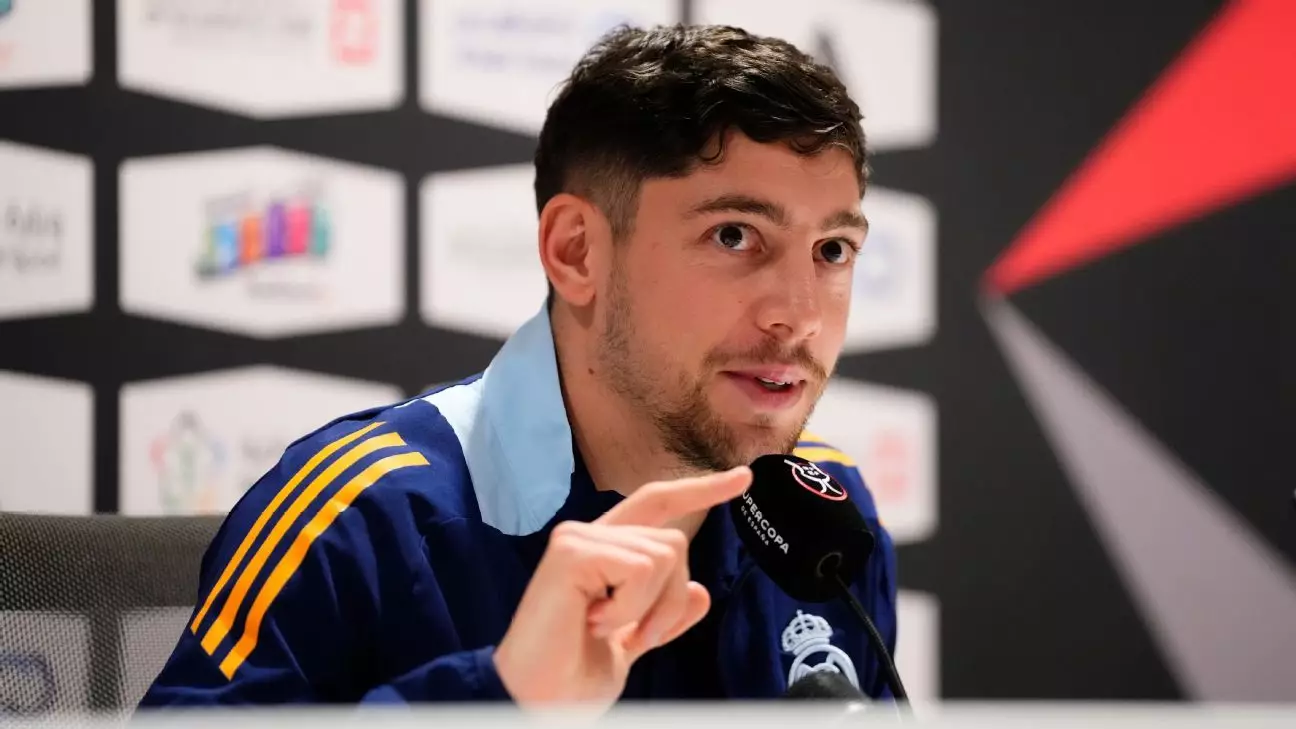As the excitement builds for the Supercopa final, the rivalry between Real Madrid and Barcelona intensifies, bringing not only an age-old contest but also a showcase of high-octane footballing philosophies. Federico Valverde’s remarks regarding Kylian Mbappé set the tone for the match, as he acknowledges the complexities of challenging Barcelona’s high defensive line. The last encounter saw Mbappé grappling with the aggressive offside trap set by Barcelona, resulting in an alarming eight offside calls. It’s a vivid reminder of the pressure young talents face against seasoned opponents.
Valverde’s refusal to give “lessons” to Mbappé is both a display of humility and respect for a player who has already achieved monumental success at a young age, including a World Cup victory. His comment encapsulates the spirit of collective effort necessary to dismantle a compact defense rather than relying solely on individual prowess. However, it raises questions about the expectations placed on rising stars to maneuver around formidable defensive strategies. How much can one player, even one as talented as Mbappé, bear when the stakes are so high? Valverde’s insights hint at a larger narrative in football—success is often a byproduct of teamwork rather than individual heroics.
When discussing the challenge posed by Barcelona’s high line defense, Valverde emphasizes the need for Madrid’s midfielders and defenders to collaborate closely. Adaptability and awareness become key factors here, as Madrid prepares to counteract Barcelona’s strategic maneuvers. The emphasis on the right passes highlights the tactical nuances that can determine the outcome of such tightly contested matches. It’s a reminder that in football, the execution of well-laid plans can often dictate the rhythm of the game.
Barcelona’s administrative hurdles, particularly the situation around Dani Olmo’s registration, add another layer of complexity to the match. Valverde’s remarks on the emotional toll such situations take on players underscore the human aspect of football, where personal aspirations collide with bureaucratic challenges. It is a testament to the mental fortitude required to maintain peak performance while under lingering uncertainties. The focus must not only be on the field strategies but also on the psychological preparedness of players.
The recent Supercopa semifinal saw an eruption of emotions as Madrid players confronted Pablo Maffeo over perceived rough play towards Vinícius Júnior. Valverde’s observation reflects the volatile nature of football, where emotions can spiral out of control in the heat of competition. Such incidents, though commonplace, illustrate the thin line between passion and aggression, emphasizing the need for emotional intelligence on the pitch.
As the rivalry unfolds, the narrative extends beyond mere tactics and technicality. Each player’s mentality, every team’s strategy, and the overarching emotions contribute to the essence of El Clásico. In an age where football has become synonymous with strategy and statistics, it’s crucial to remember that at its heart, the game thrives on human interaction—both brutal and beautiful. The upcoming Supercopa final promises to be a vivid spectacle, rich with storylines that echo beyond the final whistle.

